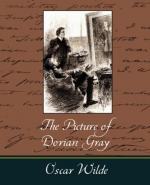Yes, there was to be, as Lord Henry had prophesied, a new hedonism that was to re-create life, and to save it from that harsh, uncomely puritanism that is having, in our own day, its curious revival. It was to have its service of the intellect, certainly; yet it was never to accept any theory or system that would involve the sacrifice of any mode of passionate experience. Its aim, indeed, was to be experience itself, and not the fruits of experience, sweet or bitter as they might be. Of the asceticism that deadens the senses, as of the vulgar profligacy that dulls them, it was to know nothing. But it was to teach man to concentrate himself upon the moments of a life that is itself but a moment.
There are few of us who have not sometimes wakened before dawn, either after one of those dreamless nights that make one almost enamoured of death, or one of those nights of horror and misshapen joy, when through the chambers of the brain sweep phantoms more terrible than reality itself, and instinct with that vivid life that lurks in all grotesques, and that lends to Gothic art its enduring vitality, this art being, one might fancy, especially the art of those whose minds have been troubled with the malady of revery. Gradually white fingers creep through the curtains, and they appear to tremble. Black fantastic shadows crawl into the corners of the room, and crouch there. Outside, there is the stirring of birds among the leaves, or the sound of men going forth to their work, or the sigh and sob of the wind coming down from the hills, and wandering round the silent house, as though it feared to wake the sleepers. Veil after veil of thin dusky gauze is lifted, and by degrees the forms and colors of things are restored to them, and we watch the dawn remaking the world in its antique pattern. The wan mirrors get back their mimic life. The flameless tapers stand where we have left them, and beside them [68] lies the half-read book that we had been studying, or the wired flower that we had worn at the ball, or the letter that we had been afraid to read, or that we had read too often. Nothing seems to us changed. Out of the unreal




